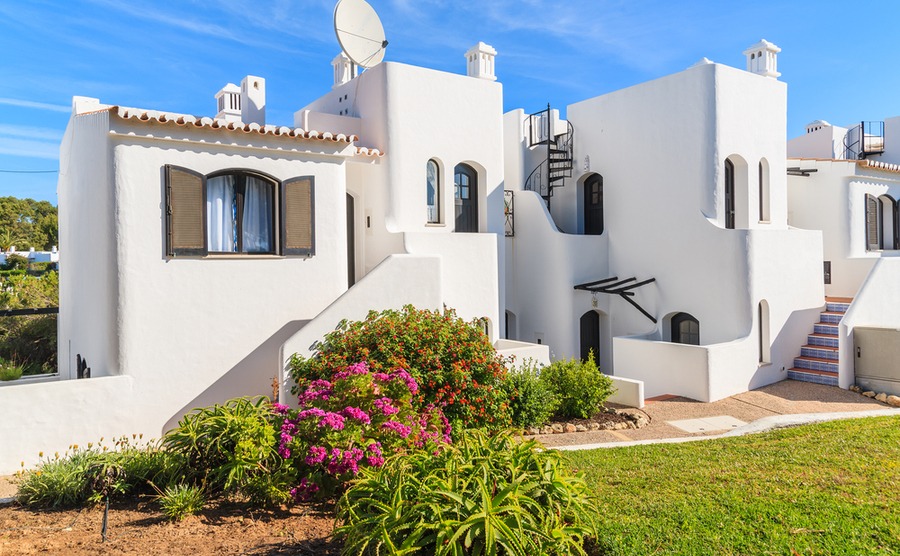The clock’s ticking on Brexit – but is the door really about to close for Brits starting a new life in the sun out here in Portugal? There’s a lot of hype going around, but 1 in 10 foreign investors is from the UK – so what’s their secret?
It’s simple: they know how to move here, whether there’s a Brexit deal or not, so they’re already thinking ahead. They’re ‘Brexit-proofing’ their plans. Here’s how you too can buy a home in Portugal, no matter what happens:
Find homes in Portugal via our property portal.
Buying a home in Portugal if there’s a Brexit deal
If the current withdrawal agreement’s accepted, you’ll be able to move exactly as you can now, without a visa, through a two-year implementation period until 31 December 2020. As a plus, if you’re settled before that date, you’ll have your rights guaranteed for five more years. After that, you can change to permanent residency.
Buying a home in Portugal if there’s a no deal
You can still buy that perfect Algarve villa or Lisbon apartment if there’s a ‘no deal’. Firstly, you won’t need any extra legwork to actually buy property – it’s not covered by the EU’s Four Freedoms. Secondly, you’ll just need to apply for the right visa once you’ve bought, and you’ll be able to come over. A good lawyer will make this process completely smooth and painless.
You won’t need any extra legwork to actually buy property after Brexit – it’s not one of the EU’s Four Freedoms.
These are your main options:
Owning a holiday home
You can just apply for a simple tourist visa every time you visit Portugal. You can stay for around 90 days a time (more than enough time to top up your tan in the Mediterranean sun).

Even in the event of a no deal, with the advice of the right lawyer, you’ll still be able to move to Portugal after Brexit.
Retiring to Portugal
You can apply for a D7 passive income visa, as long as you have a stable income (including a pension). The first adult applicant will need to earn 100% of the minimum wage (€580 a month) and any further adults, half of that (€290 a month). For accompanying children, you’ll need to earn 30% more (€174) per child. You’ll need to show proof of income.
This visa allows you stay to for four months, during which time you can convert it into a one-year residency permit. You can renew this for successive chunks of two years, until converting it into a permanent residence permit after five years.
Working in Portugal
This will depend on whether you are employed or self-employed. For salaried employees, you’ll get a residence visa to exercise subordinate professional activity, as long as you have a contract of employment and the appropriate recognised qualifications, if needed.
Get in touch with one of our carefully selected legal partners today to find out more about moving after Brexit.
If you’re striking out on your own as self-employed, you’ll need a residence visa to exercise independent professional activity. You’ll have to show proof of incorporation under the law and either a contract for the provision of services or a declaration of commencement of activity. Your lawyer will be able to help with these
Another option is the EU blue card, which is valid for a renewable period of one year. You’ll need to show you have a job offer and a salary of at least around €23,700.
Investing in Portugal
Portugal has a famous so-called ‘golden-visa’ scheme, with one of the lowest entry thresholds. All you need to do is to buy a home of over €350,000. There are some restrictions on types of homes (they need to be in an urban rehabilitation area, or to be 30+ years old) – your lawyer will help you check these in the Land Registry.
In return, you’ll get residency for five years in Portugal, providing that you spend at least seven days in the country in the first year and fourteen days in the following years. Your family will also be able to come out and join you with the same residency rights! Finally, after five years, you’ll be able to apply for permanent residency.
Tax breaks for overseas buyers
Portugal is keen to attract overseas investors (no matter Brexit), and there are a few ways they sweeten the deal for buyers from abroad. The non-habitual residency scheme means you can receive foreign income tax-free – and get a 28% reduction on taxes to 20% on Portuguese income – for up to ten years. When you apply, you’ll just need to have not already lived in Portugal for the last five years, and either have a property or stay for a minimum of 183 days in the country.
With that, you’ll be able to enjoy ten years in the Portuguese sun without paying any tax on your pension or other income!
Your ‘Brexit-proofing’ to-do list:
- Connect with a trusted lawyer about the best visa for you and how to apply
- Talk to your currency company how to transfer your money, so you have a set euro budget
- Once you’re in Portugal, register as a temporary resident at your town hall (câmara)
Speak to our trusted Portuguese visa specialists
They will help you pick the right visa for your circumstances. Our recommended specialists have years worth of experience in helping our readers. They will give you all of the information you will need clearly and concisely, in English.
You can Brexit-proof your plans and get connected with our visa specialist by completing our short form.










